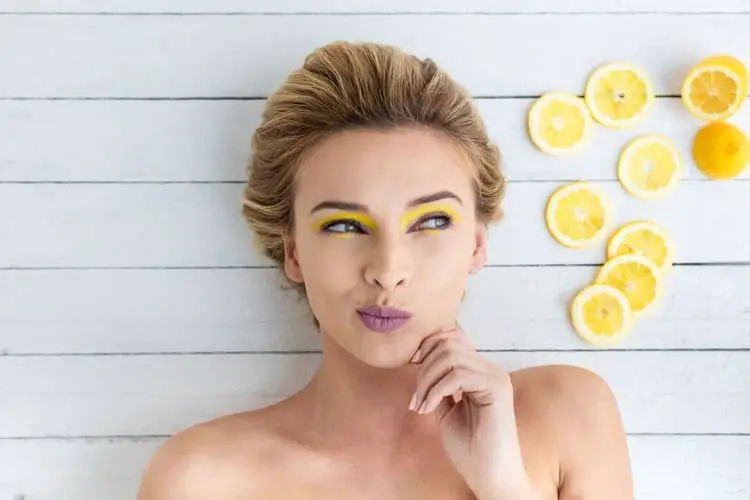Every woman wants to look her most beautiful, but at what cost? When you pull off that smoky eye, lengthen your lashes in rich mascara, or plump up your lips with a bright come-hither color, do you know if the brand you’re using is testing it on animals?
It should be a major concern to you that in today’s world, companies still test on animals. But if you think going vegan is the way to avoid it, think again. Not all vegan cosmetics are cruelty free.
So to answer your burning question: are vegan cosmetics cruelty free?
No. They’re not. Vegan is not the same as cruelty free. Yes, they can overlap, but these two terms are not synonyms for one another.
Vegan cosmetics, in a nutshell, aren’t made with animal products. They’re plant-based. Cruelty free cosmetics can be made with animal products but they’re not tested on animals. So if going vegan in life and cosmetics is important to you but so are all the cute and fuzzy animals (and even the not-as-cute non-fuzzy creatures), then you’re going to have to actively seek out makeup that is both vegan and cruelty free.
To do so, you should really read the labels of what you’re buying. We’re going to dig into all of that so you’ll be a vegan and cruelty free makeup expert in no time so keep on reading!
What are vegan cosmetics?
If you’re concerned about being vegan and not using any animal products whatsoever, you want vegan cosmetics in your life. To be labeled as ‘vegan’ they must not contain any animal ingredients or anything derived from an animal.
That means no honey or beeswax, collagen, lanolin, carmine, gelatin, albumen, and cholesterol, among a number of others. But if you think that a vegan product is cruelty free, that’s not always the case. Most people assume that a vegan product isn’t tested on animals. You’d think that would be the case, but no. You need to look for vegan cruelty free products to be sure of that.
Products that are tested on animals can be labeled as vegan as long as they fit the bill of not containing any animal ingredients or animal-derived ingredients. Is your head spinning yet? Thought so!
Fortunately, there are many beauty companies that offer products that are cruelty free and a selection of vegan items, but they might not have a full vegan line. However, most are transparent in allowing you to see which items are began and which aren’t. If a company seems like they’re hiding anything or won’t provide you with a clear response to your inquiry, you should steer clear. There are many others that will be happy to tell you the truth about whether the ingredients are vegan or not.
What are cruelty-free cosmetics?
A cruelty free product on the other hand CAN have animal ingredients or be animal-derived but can’t be tested on animals in any form or during any stage of the formulation of the product. So it can be cruelty free but not vegan.
What’s more, it’s often common practice for companies to not test that final product creation on animals while testing it along the way. Another thing that can happen is that they will use ingredients that have been conducted in tests on animals by a third-party. You may have also heard of “required by law” animal testing which basically means that the end product is tested on animals by an unrelated third party to be sure it complies with regional laws in a certain part of the world. So if you see that on your label, know that it is not a cruelty free product.
Anything that isn’t tested on animals isn’t always vegan though. If you see things like honey or beeswax for example, natural as those ingredients are, they are not vegan. If being vegan is important to you, you need to avoid ingredients that come from animals and stick to products that are labeled as vegan.
But what if you want to buy vegan products and be sure that no animals were harmed in the making of them? Keep reading and you’ll know what you should be looking for when you’re shopping for your cosmetics.
Can some cosmetics be called vegan but not cruelty-free?
In some situations, yes, they absolutely can be vegan but not cruelty free. As an example, you may look at a product that is vegan and free from things like carmine or beeswax. That would make it a vegan friendly product. But the ingredients individually or the finished product itself may very well have been tested on animals.
Take a look at the toothpaste you use. In an effort to be more plant-based and friendly for vegan usage, you may see plant-derived glycerin used in them instead of sources of animal fat. This would make it vegan (hooray!) but before you rejoice, you should know that toothpaste could have been tested on animals or the ingredients it contains may have been subjected to animal testing. These are what you might call an “accidentally vegan” product, but in no terms does this mean it’s a cruelty free product.
In other situations, the answer to our question posed above – can some cosmetics be called vegan but not cruelty free – is no. That’s because there isn’t a standard definition of the word vegan.
Confused yet? Don’t be! For it simply means that some people consider vegan to mean that it doesn’t contain any animal products. But for others, the term vegan applies to something not containing any animal products and not exploiting animals in the creation, development, or manufacturing of the product. That means animal testing.
If you’re a vegan that has adopted this lifestyle because you find eating or using animals in any way, shape, or form to be cruel, then the second definition for vegan is what you base everything in your life around. And while we applaud that, we want you to be fully aware that you should make sure that a company that you’re planning to use for its products holds the same definition of vegan as you do.
Because by law, on products, vegan on a label means that it is free of animal products and animal-derived products. But it doesn’t have to be cruelty free. Read your labels and research to ensure the products you choose are in line with your way of thinking. Fortunately, you don’t have to go too crazy with research because you can look for several logos on the packaging to help narrow down your choices. You may still have questions for the company that produces these products, but again, if they’re transparent and have nothing to hide, they will be honest in answering your questions.
So, what logos should you be looking for on the packaging if you want to avoid using anything made with animal ingredients or animal by-products AND keep a cruelty-free lifestyle too? You’ll want to look for the Certified Vegan logo by Vegan Action, Cruelty Free and Vegan logo by PETA, and the Vegan Trademark by the Vegan Society.
Keep reading for more details on those and other things to look for below!
Can some non-vegan cosmetics be cruelty-free?
Yes, there are cruelty free cosmetics aren’t there that aren’t vegan. These products weren’t tested on animals but they might contain animal products. A prime example of this is the famed Burt’s Bees brand. They are very strict about not testing on animals. They’re certified to be cruelty free by PETA and Leaping Bunny. However, as many of the products are made from the things bees create like honey and royal jelly, they are not vegan.
So if you’re not fully a vegan, Burt’s Bees makes products you can use with a clear conscience. But if you are vegan and you never want to use anything that was made with animal products, you’ll have to find something else to use.
This is good news for any of you that aren’t exactly vegan and just want to do right by the planet and the world. Choosing cruelty free products is a step in the right direction. You don’t have to go vegan to be kind to animals or stand up for what is right, though if you do, that’s an even better way to make a positive impact on the planet.
Both vegan and cruelty free exist too
But if you’re vegan and not just for the healthful aspects of it but because you do not want to harm any animals in anything you do, then you will be very happy to know you can find cosmetics that are both vegan and cruelty free all at once. Again, you need to read the labels and check to be certain you are buying what you think you’re buying.
While Burt’s Bees has a great reputation, if you are a strict vegan, you will be very upset to use those products because there are ingredients that come from animals. There are many brands that are both vegan and cruelty free though including Emani, Pacifica, OCC, and Beauty Without Cruelty.
Because the demand for vegan products continues to rise, you can expect that more brands will be providing vegan options. Also, there are some brands that offer everything cruelty free but have a few vegan options. It’s wise to check with them if you have any questions about what is in each product.
How to better shop for vegan or cruelty free cosmetics
Now that you know there is a difference between vegan and cruelty free cosmetics, it will be easier to shop for them. Again, vegan cosmetics do not mean they are cruelty free. You must find a brand that is both vegan and cruelty free if you want to ensure you’re getting the best of both worlds. Cruelty free products do not mean they are vegan as well, so decide which is important to you before you research the cosmetic products that interest you.
Keep reading and you’ll find out what the labels mean so you’ll know how to make the right choice for you. Here is the best way to shop for vegan or cruelty free cosmetics.
– By understanding different labels and their legitimacy degree
First, let’s talk about what the different labels mean.
– No Animal Ingredients
When a label says, “No animal ingredients,” it means that there are no ingredients in it that are derived from animals nor are they obtained from animals (like beeswax for example).
What this means for you though isn’t as cut and dry. While there are no animal products or by-products in the product in question, there are no organizations or label standards that verify the use of this on a label. To put it another way, it’s basically like saying something is “natural.” There’s no regulation regarding it.
And another thing about “no animal ingredients” is that it may have been tested on animals. So there’s a lot going on here since anyone that makes a cosmetics product could theoretically slap a label on their product that says “no animal ingredients” on it and call it a day.
It usually isn’t something done out of malice to make a person following a vegan lifestyle use animal products either. It’s basically misinformation on their part that they keep perpetuating. Some companies might not realize that things like beeswax, honey, or lanolin are animal products since no animals were slaughtered to get those ingredients.
The bottom line with the “no animal ingredients” listed on any product labels you come across is this: it’s not a guarantee that it is a vegan product, nor is there any guarantee that it wasn’t animal-tested, so buyer beware!
– Cruelty-Free
Cruelty free labels are often written in a variety of ways. You may see labels that say, “Not tested on animals,” “No animal testing,” “We don’t test on animals,” or “Against animal testing.” But what does it mean for you?
These words surely sound comforting. They make you feel happy to choose that brand and use it, but the problem here is, like with “no animal ingredients,” it’s just a bunch of warm and fuzzy words to get your attention. Clever marketing really.
And while it does mean the product and the ingredients within it were not tested on animals, there is no label standard or organization that verifies that claim. It’s not a given that a product with these types of wordings on it is vegan either.
That means that as above, anyone can simply say “cruelty free” on their label, or rephrase it in any cozy way they wish, but there is nothing that proves it. In fact, that company may very well commission animal testing of their items through a third party or the supplier of the ingredients may conduct animal testing on the raw ingredients before the company that makes the products uses it in their formulation. Yikes!
– 100% Vegetarian
Ah, vegetarian. That’s a good thing, right? Well, not so fast. You may see it as “Vegetarian,” “Vegetarian-friendly,” “Vegetarian ingredients,” or even “Suitable for vegetarians” on a label. It means that there are no animal-based ingredients or ingredients that came from the slaughtering of animals, though it MAY contain animal by-products like beeswax, honey, milk, shellac, or whey.
Again, the problem here is that there is no organization that verifies using this label. So without the standards set in place, it’s just more buzzwords to hype you up. Vegetarian cosmetics may or may not have been tested on animals. Without authenticity from one of the official labels, you may never know.
If you made a batch of facial mask in your kitchen right now with honey and avocados, you could call it “vegetarian” which is basically the same thing that happens with labels that indicate as such on their products. But in your kitchen, you know what you’re putting in there. The real trouble with “100% vegetarian” labels is that there may be animal ingredients used in the manufacturing of the product, even if those ingredients don’t land in the end product. To be sure you know what you’re getting, don’t settle for this vague label.
– 100% Vegan
By now, you’ve likely spotted a pattern, haven’t you? Anyone that creates any product can throw these buzz words on a label to convince you to buy them. That’s pretty scary, especially when you are committed to a vegan lifestyle. If you saw a product that said, “Vegan,” “Vegan-friendly,” “Vegan ingredient,” or “Suitable for vegans,” you might just be inclined to purchase it.
But what you should be very careful of is that while it doesn’t contain animal ingredients or animal by-products by definition, there are no verified organizations backing it up. Simply adding “vegan” to the packaging does not mean it’s legit!
Also, it could have been tested on animals, and for vegans that have adopted the lifestyle because they don’t want any animals harmed when they use the products they use, that’s a huge problem. Anyone can put this word on their label, plus even if it says “vegan,” it may or may not have used animal-derived items in the processing of it even if it’s not in the end product.
Long story very short: words are just sentences. Or phrases in this case. You can’t just rely on something stating it’s “vegan” or “cruelty free” (or even both) and believe it. You need that verified by a legitimate source. So keep reading and you’ll see what you’ll be looking for instead!
– By understanding different logos and their legitimacy degree
So the second point in this lengthiness is that there are different logos you should be looking for on those labels of your cosmetics. If you see the word “vegan” on there and you’ve got the logo from an official organization to back it up, it’s a good choice that fits your values. Here’s the rundown of the logos and what they stand for.
– Cruelty-free bunny logo
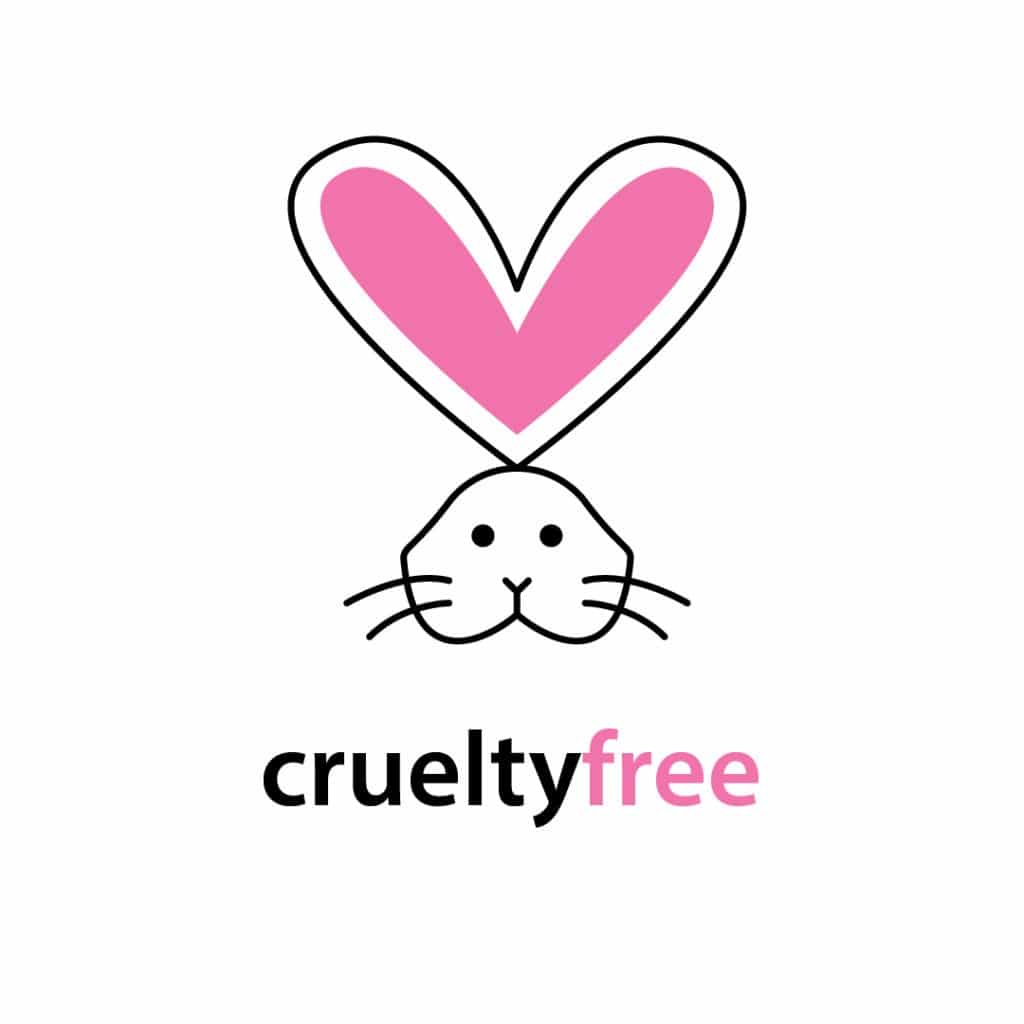
When you see this bunny logo that says “cruelty free” on it, it is a product verified by PETA. This means that the company producing the cosmetics you’re considering and the suppliers they get their ingredients from do not conduct animal testing. They don’t commission testing from anyone or pay for any tests on any animals for formulations, ingredients, or the end product.
This logo cannot go on a product label without PETA evaluating it first. Companies that want to be recognized for true cruelty free practices must fill out a short questionnaire and sign a statement guaranteeing their oath of no animal testing. These companies must also pay to use this logo and obtain a license for it. In other words, PETA does not hand these out like a kindergarten teacher hands out gold stars every day.
The one pitfall of this though is that there is no testing or monitoring performed on the products that a company submits to have PETA’s logo appear on. It goes with the honor system here, which one would hope is being followed. The other thing to know is that just because the PETA logo for cruelty free appears on a product does not mean it’s vegan.
– Not tested on animals bunny logo
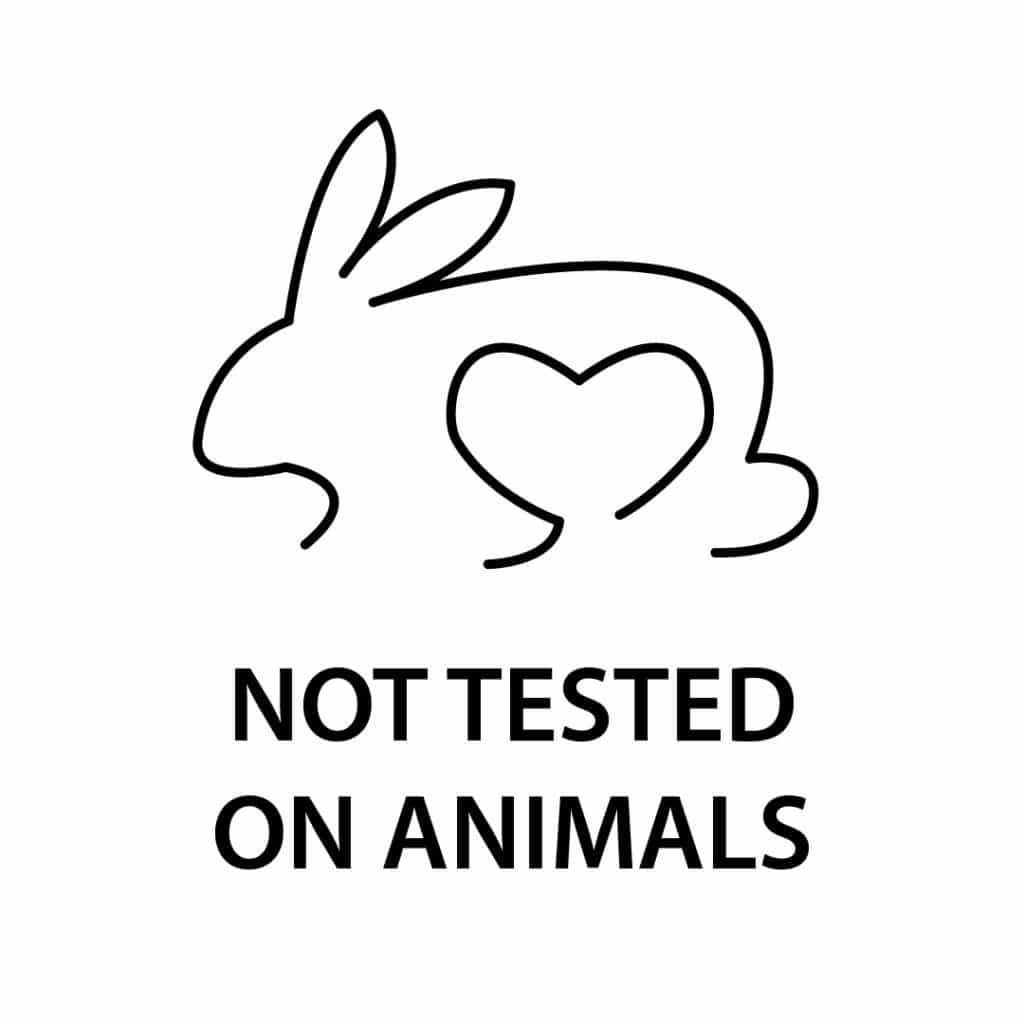
Now for another bunny! This one means that none of the products and the ingredients in it have been tested on animals. It also represents that no one – suppliers or anyone acting on the company’s behalf – tested on animals and it can’t have any ingredients derived from slaughtering an animal or that is a by-product of an animal that resulted in its death.
Choose Cruelty Free (CCF) is the organization behind this logo and it refuses to accredit any company unless the parent company and all subsidiaries are also accredited. Like PETA, there is a questionnaire they must fill out and fees they must pay to obtain licensing to the logo. But unlike PETA, CCF requires a legally-binding contract for companies to pay for and use their logo.
Without an auditing system to ensure it, it’s more of the scout’s honor but for CCF, these companies must regularly undergo re-accreditation to legitimize their claims for cruelty free and continue to meet the criteria required by CCF. There are also some limitations as to the animal ingredients used, but there are some vegetarian products that can be certified.
– Leaping bunny logo
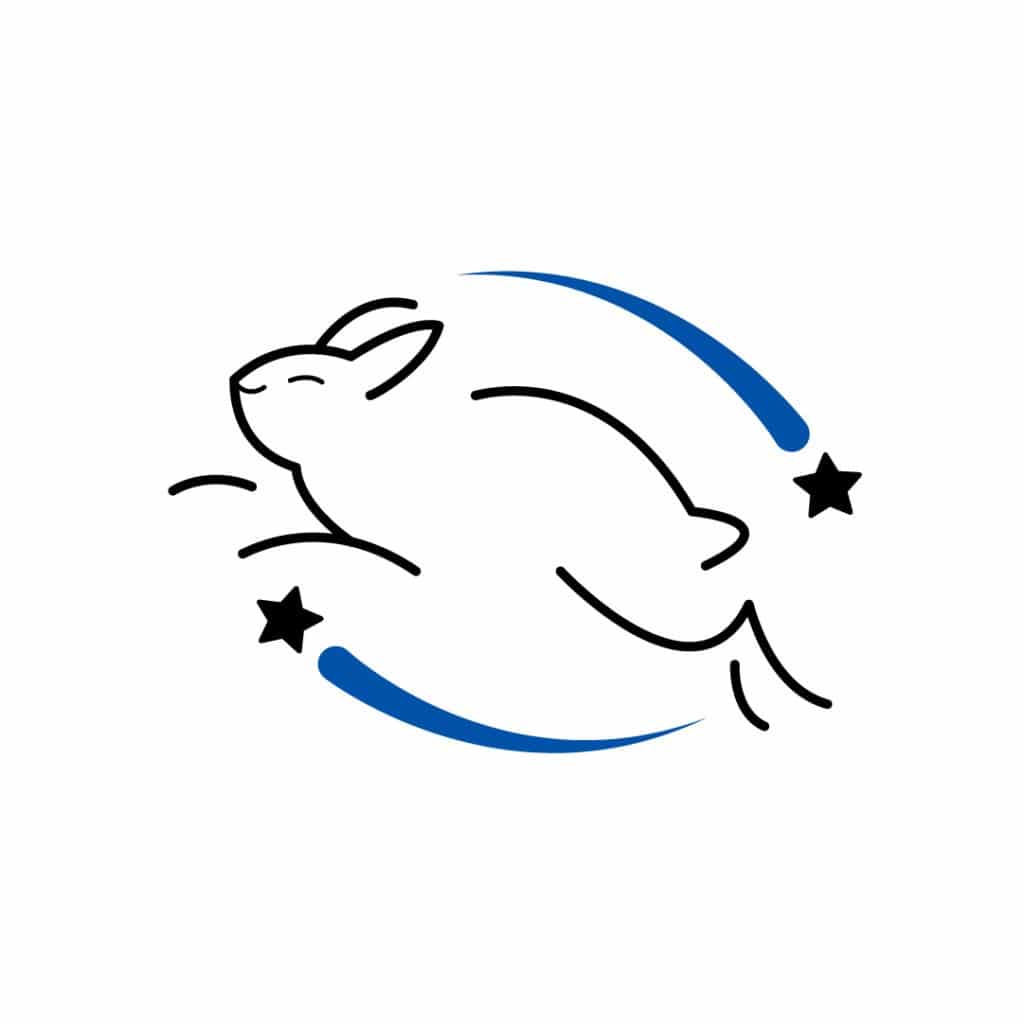
Verified by Leaping Bunny, this means the company with this logo on the label and the suppliers of the ingredients are committed to and fully pledge to the standards set into place by Leaping Bunny. Those standards mean that the company in question agrees to be audited once every three years. The audit is completed by an independent assessor to ensure accuracy and legitimacy of the claims.
Any company that uses the Leaping Bunny logo must pay for it, and it’s comforting to know that when you see this label, you can trust that claims for no animal testing have been verified. What you can’t be sure of though is that it does not guarantee the product this logo appears on is vegan.
– Cruelty-free and vegan bunny logo
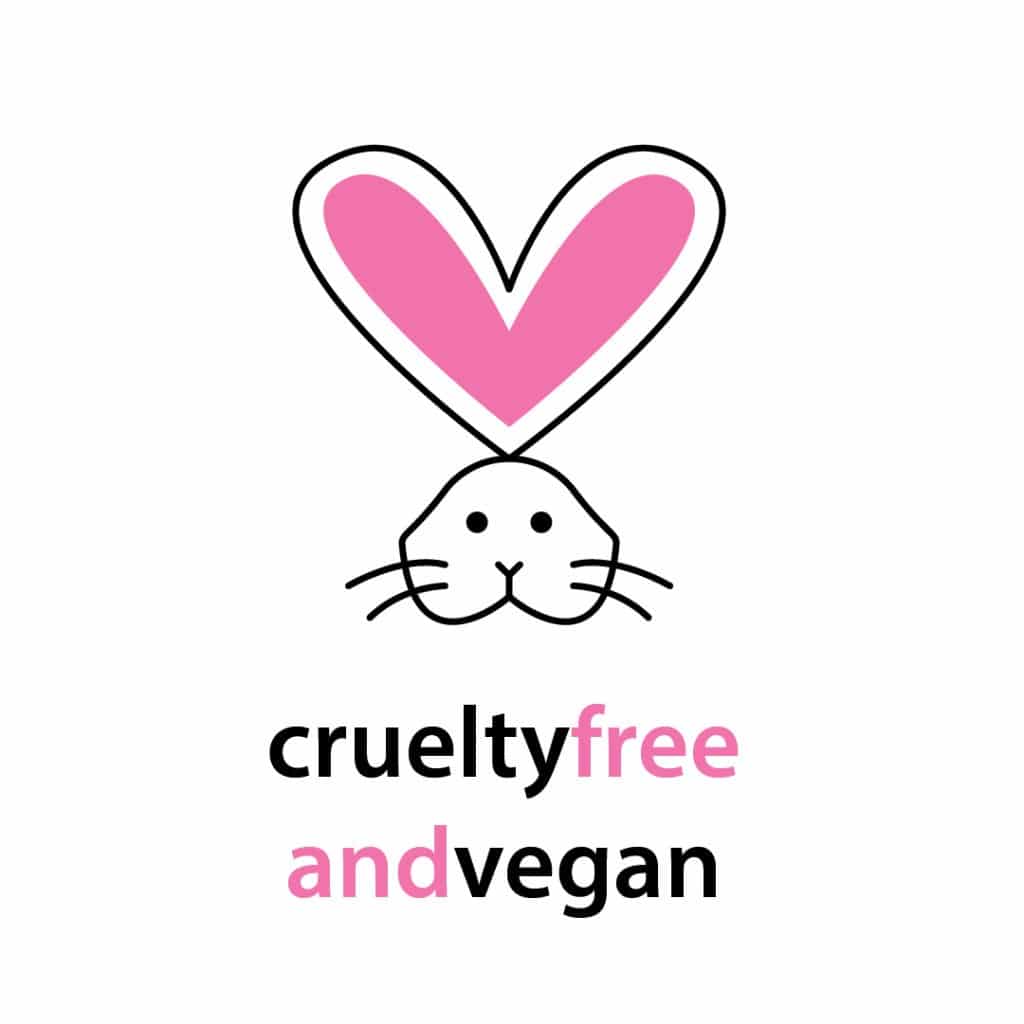
Another logo representing the reassurance from PETA, this one represents no animal testing in any way (from formulations to ingredients and through all suppliers too). It also represents a vegan product. As before though, PETA does not test or monitor the products to ensure that the claims made are legitimate. It simply requires a questionnaire and affidavit of assurance along with payment of fees to use the logo. So while it can be reassuring to see this logo, if some unscrupulous company came along and had the money, they could technically lie about their claims in their written statements.
– Certified vegan logo verified by Vegan Action
This logo by Vegan Action represents a vegan product with no animal ingredients or by-products in the manufacturing process. It also stands for no animal testing by the company or any independent contractor or supplier. Companies must sign written statements and present documentation verifying their claims to get the chance to pay for and use the license of the logo on their products. There is no testing or monitoring done, so Vegan Action merely relies on the accuracy of the documents presented to them when a request for using the logo comes in. It is entirely possible for someone to fake data to show to them to get the approval needed, which is a scary thought.
– Certified Vegan logo verified by Vegan Society
The Vegan Society’s logo represents products and ingredients that have no animal products, by-products or derivatives and are free of any type of animal testing either by the manufacturer or any supplier. Companies must have signed and written affidavits stating they meet the criteria, but again, as is the case with many of these things, there is no testing or monitoring. It’s all done on an honor code, though it is less likely with the issuing of documents that must prove authenticity for fraud to occur. Still, it could theoretically happen.
– By simply referring to Logical Harmony list of cruelty-free brands
If you’re still buzzing about all of this information and trying to make sense of it, or you’d just like a step in the right direction when zeroing in on your research for vegan and cruelty free products, look at Logical Harmony’s list. It is a list that is updated weekly with cruelty free brands and all of the brands listed have vegan options in their product lines. They reach out to brands regularly to see if any changes have occurred with their status on animal testing too. It’s definitely worth looking at to see at a glance who you can buy from for cruelty free and vegan products.
Conclusion
The words on your product labels are just that…words! They’re meant to motivate you to buy a product. But don’t let words sway you alone. Look for legitimate logos from companies that are vegan and promote cruelty free practices. Granted, those logos can be obtained without a rigorous investigation, but chances are pretty good that the claims they make can be verified.
Checking out the Logical Harmony list too for the most current listings of cruelty free and vegan items. And if you’re ever in doubt, contact the company of the product you’re interested in. Companies that have nothing to hide will be happy to talk to you and answer your questions honestly so don’t be shy!

